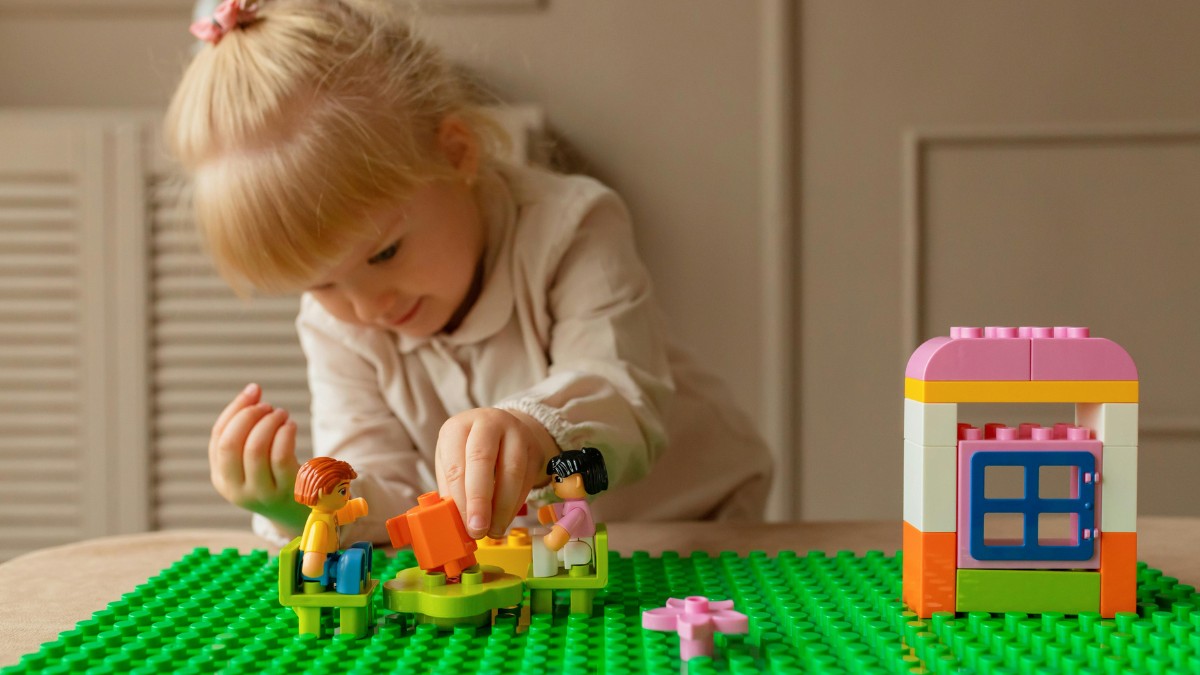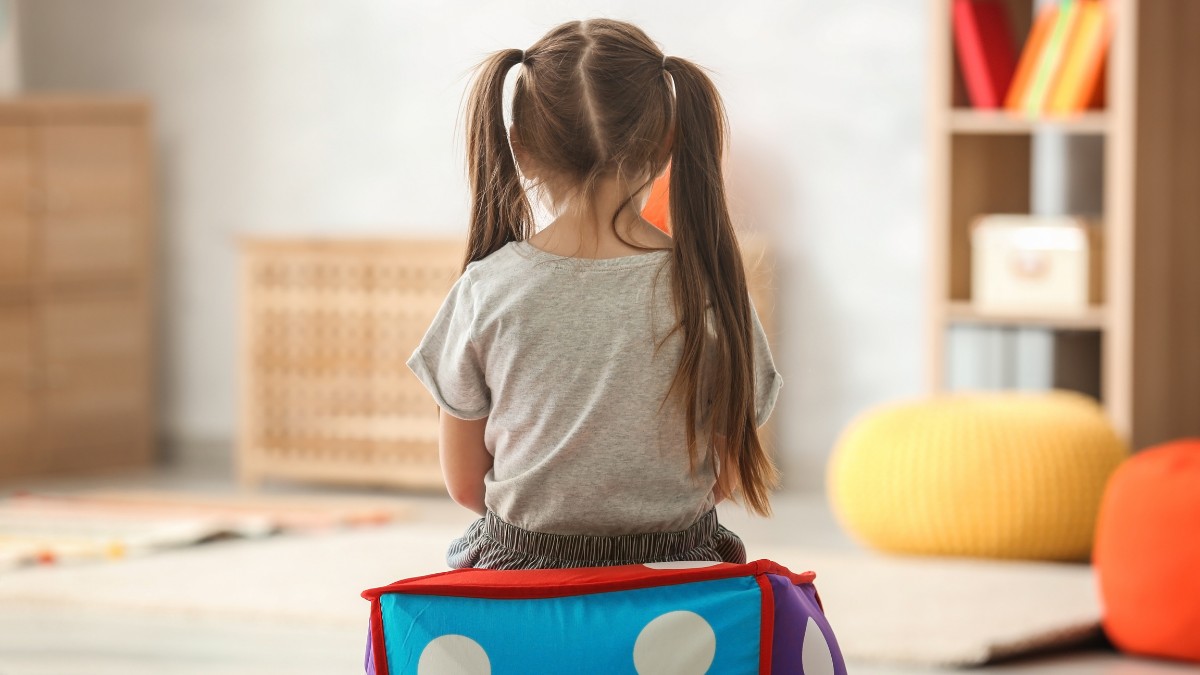Importance of Social Stories for Kids with Autism
Unlock social success for kids with autism through effective social stories. Reduce anxiety, improve communication, and enhance social skills. Discover resources now!
.avif)
Importance of Social Stories for Kids with Autism
Understanding Social Stories for Kids with Autism
Social stories are a valuable tool for supporting children with autism in navigating social situations. These stories are designed to provide individuals with autism a clear and structured explanation of social interactions, expectations, and appropriate behaviors. By using visual and written prompts, social stories help children with autism understand and engage in social situations more effectively.

What are Social Stories?
Social stories are short narratives that describe specific social situations, often using visual supports such as pictures or drawings. These stories are written in a simple and concise manner, using language that is easy for children with autism to comprehend. Social stories aim to break down complex social concepts into smaller, more manageable pieces, making them easier for children with autism to understand and apply in real-life situations.
The structure of a social story typically includes a description of the social situation, the expected behavior or response, and the potential consequences. By presenting information in a clear and predictable manner, social stories help children with autism anticipate and navigate social interactions with more confidence.
Importance of Social Stories for Kids with Autism
Social stories play a crucial role in supporting the social development of children with autism. Here are some key reasons why social stories are important:
- Enhancing Understanding: Social stories provide children with autism a concrete and visual representation of social expectations, helping them understand what is expected of them in different social situations.
- Promoting Predictability: By presenting information in a structured and consistent manner, social stories help children with autism anticipate and prepare for social interactions, reducing anxiety and stress.
- Improving Social Skills: Social stories teach children with autism appropriate social behaviors and responses, enabling them to develop and improve their social skills over time.
- Increasing Independence: By providing clear guidelines and expectations, social stories empower children with autism to navigate social situations independently, fostering their confidence and self-esteem.
- Facilitating Communication: Social stories can also support the development of communication skills, as they encourage children with autism to express their thoughts, feelings, and needs in a structured and understandable way.
Overall, social stories are an invaluable tool for children with autism, helping them develop social understanding, navigate social situations, and build meaningful connections with others.
Understanding the importance and benefits of social stories is the first step in creating effective stories tailored to the individual needs of children with autism. By incorporating social stories into their daily routine, parents, educators, and therapists can provide valuable support to children with autism as they navigate the complexities of social interactions.
Creating Effective Social Stories
When it comes to creating social stories for kids with autism, it is crucial to tailor the stories to their individual needs. Each child with autism is unique, and their social challenges may vary. By customizing the social stories, we can effectively address their specific areas of difficulty and provide meaningful support.
Tailoring Stories to Individual Needs
To create effective social stories, it is important to consider the specific strengths, weaknesses, and preferences of each child with autism. Here are some key points to consider when tailoring social stories to their individual needs:
- Identify Target Skills: Determine the specific social skills or behaviors that the child needs support with. It could be anything from understanding personal space to following a daily routine.
- Use Personalized Examples: Incorporate familiar people, places, and situations into the social stories. By using examples that are relevant to the child's life, they can better relate to and understand the content.
- Consider Sensory Sensitivities: Take into account the child's sensory sensitivities and incorporate strategies to address them. For example, if the child is sensitive to loud noises, include strategies for coping with noise in social situations.
- Visualize Social Scenarios: Utilize visual supports such as pictures, symbols, or drawings to enhance understanding and engagement. Visual cues can help children with autism process and remember information more effectively.
Using Visual Support in Social Stories
Visual support plays a vital role in enhancing the effectiveness of social stories for kids with autism. Here are some ways to incorporate visual support into social stories:
- Visual Cues: Use images, symbols, or icons to represent key concepts, emotions, or actions in the story. These visual cues provide additional support for comprehension.
- Sequential Images: Break down complex social situations into a series of sequential images. This helps the child understand the order of events and anticipate what might happen next.
- Visual Schedules: Consider using visual schedules to outline the steps involved in a specific social activity or event. This helps the child visualize the sequence of actions and reduces anxiety by providing predictability.
- Social Scripts: Incorporate visual scripts that demonstrate appropriate social interactions or responses. These scripts can guide the child in navigating social situations and help them learn and practice appropriate behaviors.
By tailoring social stories to individual needs and incorporating visual support, we can create effective tools for supporting children with autism in social situations. The personalized nature of these stories and the use of visual aids can greatly enhance their understanding, engagement, and overall social skills development.

Topics to Cover in Social Stories
When creating social stories for kids with autism, it's important to address specific topics that can help them navigate social situations more effectively. Here are three key topics that can be covered in social stories:
Preparing for Social Events
Preparing for social events can be overwhelming for children with autism. Social stories can provide them with a clear understanding of what to expect and how to prepare themselves. These stories can cover topics such as:
- Identifying the purpose of the event.
- Understanding the expected behavior and social norms.
- Practicing appropriate greetings and introductions.
- Managing sensory challenges that may arise during the event.
- Coping strategies for handling anxiety or stress.
By addressing these aspects in social stories, children with autism can feel more confident and prepared for social events, reducing anxiety and enhancing their overall experience.
Dealing with Unexpected Changes
Children with autism often struggle with unexpected changes in their routines or social situations. Social stories can help them develop coping strategies and adapt to unexpected changes more effectively. These stories can cover:
- Explaining that unexpected changes can happen.
- Identifying common types of changes they may encounter.
- Teaching flexible thinking and problem-solving skills.
- Providing strategies for managing emotions when faced with unexpected changes.
- Reinforcing the idea that it's okay to ask for help when needed.
By incorporating these concepts into social stories, children with autism can develop resilience and better navigate unexpected changes in various social contexts.
Interacting with Peers
Interacting with peers is a crucial aspect of social development for children with autism. Social stories can help them understand and practice appropriate social skills when interacting with their peers. These stories may include:
- Recognizing non-verbal cues in social interactions.
- Understanding personal space and boundaries.
- Practicing turn-taking and sharing during play or conversations.
- Expressing emotions and feelings in a socially appropriate manner.
- Respecting and accepting differences in others.
By focusing on these aspects, social stories can empower children with autism to engage in positive and meaningful interactions with their peers, fostering social connections and friendships.
By covering these topics in social stories, children with autism can gain valuable insights and strategies to navigate social situations more successfully. It's important to tailor the stories to each child's individual needs and provide visual support, such as pictures or illustrations, to enhance comprehension and engagement.
Incorporating Social Stories into Daily Routine
To make the most out of social stories for kids with autism, it is important to incorporate them into the daily routine. This helps in reinforcing the social skills learned from the stories and ensuring their effectiveness in real-life situations.
Establishing a Routine for Social Stories
Establishing a consistent routine for social stories provides children with a sense of structure and predictability. Here are a few steps to consider when incorporating social stories into the daily routine:
- Identify Suitable Times: Determine the best times during the day when your child is most receptive and attentive. This could be before bedtime, after meals, or during a dedicated quiet time.
- Choose a Quiet Environment: Find a quiet and comfortable space where there are minimal distractions. This allows your child to focus on the social story without interruptions.
- Consistency is Key: Aim to read social stories at the same time every day to establish a routine. Consistency helps children with autism feel more secure and engaged in the learning process.
- Use Visual Cues: Use visual cues, such as a visual schedule or timer, to indicate when it's time for social stories. Visual cues provide a visual representation of the routine and help children understand what to expect.
Reinforcing Social Skills Learned from Stories
Social stories are most effective when the skills learned are reinforced in real-life situations. Here are some strategies for reinforcing social skills learned from social stories:
- Role-Play: Engage in role-play scenarios that mirror the social situations presented in the stories. Encourage your child to practice the skills learned by taking on different roles or using toys as characters.
- Real-Life Experiences: Provide opportunities for your child to practice the social skills in real-life situations. For example, if the social story focuses on greetings, encourage your child to greet family members or friends during gatherings.
- Visual Reminders: Use visual reminders, such as cue cards or visual prompts, to reinforce the social skills throughout the day. These reminders serve as visual cues to help your child remember the appropriate behaviors learned from the stories.
- Positive Reinforcement: Recognize and praise your child's efforts when they demonstrate the social skills learned from the stories. Positive reinforcement, such as verbal praise or small rewards, can motivate and encourage continued use of the skills.
Incorporating social stories into the daily routine and reinforcing the social skills learned from the stories are essential steps in maximizing their effectiveness. By providing a consistent routine and opportunities for real-life practice, children with autism can develop and apply these valuable social skills in various social situations.

Benefits of Social Stories for Kids with Autism
Social stories have proven to be a valuable tool for supporting the social development of children with autism. These personalized narratives offer several benefits that can positively impact the lives of children on the autism spectrum.
Improved Social Skills
One of the primary benefits of using social stories is the improvement in social skills that children with autism can experience. Social stories provide clear and explicit information about social situations, social cues, and appropriate behaviors. By regularly engaging with these stories, children can learn and practice social skills in a structured and supportive way.
Research has shown that the use of social stories can lead to significant improvements in social interactions, including initiating conversations, taking turns, making eye contact, and understanding non-verbal cues. These stories provide a framework for children to understand social expectations and navigate various social situations more effectively.
Reduced Anxiety and Stress
Children with autism often experience heightened levels of anxiety and stress when faced with unfamiliar or unpredictable social situations. Social stories help alleviate these anxieties by providing a predictable and structured narrative that prepares children for upcoming social events.
By incorporating social stories into their routine, children can develop a sense of familiarity and confidence in handling social interactions. The stories help them anticipate what to expect, understand potential challenges, and learn appropriate responses. This preparation can significantly reduce anxiety and increase their comfort level in social settings.
Enhanced Communication Skills
Communication difficulties are common among children with autism, making it challenging for them to express their thoughts, needs, and emotions effectively. Social stories can play a crucial role in improving communication skills by providing models for appropriate language and conversation.
Through engaging with social stories, children can learn and practice various communication strategies, such as using appropriate greetings, asking for help, and expressing emotions. The visual supports and clear language used in social stories help facilitate comprehension and expression, empowering children to communicate more effectively with others.
The benefits of social stories extend beyond the individual stories themselves. By incorporating social stories into the daily routine and reinforcing the social skills learned from these stories, children can experience continuous growth in their social development.
By recognizing the positive impact of social stories on improving social skills, reducing anxiety, and enhancing communication, caregivers, educators, and therapists can effectively support the social development of children with autism.
Resources for Developing Social Stories
Developing effective social stories for kids with autism requires careful consideration and planning. Fortunately, there are various resources available to assist parents, caregivers, therapists, and educators in creating and implementing these valuable tools. Two key resources for developing social stories are online tools and templates, as well as working with therapists and educators.
Online Tools and Templates
The internet offers a wide range of online tools and templates that can simplify the process of creating social stories. These resources provide ready-made templates, customizable story structures, and visual supports to enhance the effectiveness of the stories. Online tools and templates can save time and effort, allowing for the creation of personalized social stories tailored to the specific needs of each child.
These online tools and templates serve as valuable resources for individuals involved in supporting children with autism, offering a convenient and accessible way to develop effective social stories.
Working with Therapists and Educators
Collaborating with therapists and educators who have experience working with children on the autism spectrum can be immensely beneficial in developing social stories. These professionals possess expertise in understanding the unique needs and challenges faced by children with autism. They can provide guidance on creating personalized social stories that target specific social skills and address individual concerns.
Therapists and educators can offer insights into effective storytelling techniques, appropriate language use, and visual supports that can enhance the impact of the social stories. They can also help identify relevant social situations to include in the stories and provide feedback on the effectiveness of the stories in promoting desired social behaviors.
By working closely with therapists and educators, parents and caregivers can ensure that the social stories are tailored to meet the specific needs of their child with autism, fostering a collaborative and comprehensive approach to social skills development.
The combination of online tools and templates, along with the expertise of therapists and educators, provides a wealth of resources for developing social stories that effectively support children with autism in navigating social situations. Utilizing these resources can contribute to the overall success of social story interventions and enhance the social development and communication skills of children with autism.
Sources
https://www.verywellhealth.com/social-stories-for-kids-with-autism
https://www.autismparentingmagazine.com/social-stories-for-autistic-children
https://autismbehaviorservices.com/social-stories














